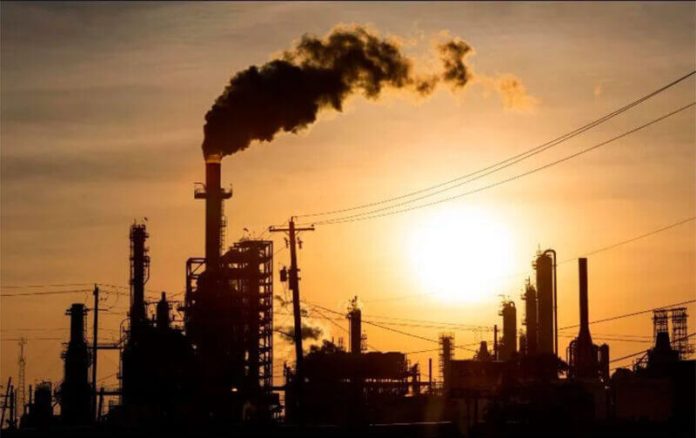Like most people, I want to be healthy. I want my body to last, and I want it to be as strong as it can be for as long as it can be. And yes, I want to conserve my nice figure and keep being pretty too.
It’s not a rare goal; most people want these things. Yet, in our modern societies, these are much trickier goals to reach than they might have been for our ancestors before the agricultural revolution, simply because we have so many things within our reach that we both love and are horrible for us.
We’re addicted to a lot of things, both as individuals and as a society, things that doom us. As a species, delayed gratification is no shining feature for us.
Cognitive dissonance sure is, though. So we continue along on our merry way, eating pure sugar and fat at regular intervals, staring at our screens for hours at a time, sleeping in after a long night of mindless scrolling or streaming instead of getting up for a jog.
We know these things aren’t healthy, but they’re so hard to kick. We’re creatures of habit, and nothing ever seems as good of an idea as doing what we usually do at the usual times. Today is never a good day to change; tomorrow is always a much better choice.
It’s only when these habits catch up to us — when our teeth are stained and cavity-ridden, when our pants don’t fit anymore, when we start suffering from insomnia and headaches and seem to catch every little virus that might float by — only then, that we take notice and think about changing. Because it’s not usually until we feel physically bad that we realize what slaves to our bodies’ biological states we are: we don’t even notice our good health when we’ve got it.
But cut a pinkie finger and we’re suddenly laser-focused on how many things we need that pinkie finger for.
The reality is that if you’re feeling terrible, or even mildly not great, it’s hard to be successful and reach your full potential in most areas. This is true for us as individuals, and it’s true for us as a society.
It’s so depressing that we’ve basically got no choice other than to — fill this part in with whatever harmful behavior is your go-to; in my case, it’s “eat this entire box of donuts until I feel so full that it’s all I can focus on” — to numb the pain. But, especially after an isolating pandemic that may or may not be over soon, this is how many of us live now.
And like most people, it’s difficult — sometimes it feels downright impossible, in fact — to do what we know we need to do to stay healthy. We’re addicted to the things that are bad for us.
And that’s the only way I’m able to relate to a situation that, to me, seems counterproductive, counterintuitive, and all-around illogical: Mexico (and most other countries, for that matter) is addicted to oil, and it’s being incredibly defiant about it.
We know where this path leads, though, don’t we? President López Obrador’s greatest wishes, far from what my socialist and justice-loving sensibilities had hoped for, seem to be to ensure that Mexico stays dependent on oil and to protect the state oil company Pemex and the state electricity provider, the Federal Electricity Commission, at all costs as if they are misunderstood, bullied victims.
But we know that burning oil for fuel is bad for us and bad for the planet. We know that someday that oil will run out. And we know that by the time it all happens, every living thing on this planet will be much worse off.
Part of the problem is that the oil is still around, and there’s still a lot of it. We know how to make it work, we’ve already got the infrastructure to keep it working and we can get a lot of money for it; Mexico’s economy and energy infrastructure is still more dependent on oil than on any other resource.
And like serial dieters suddenly abandoning their good habits in the face of overpowering cravings for pizza, ice cream and soda after a few weeks of “being good,” Mexico’s government has swept aside the private renewable energy industry it began to support in favor of diving right back into that sleek, black pool that it already knows and loves. (“Ah, that really hits the spot. Just for today, we swear. Tomorrow or next week or next month we’ll be good again.”)
But a you-only-live-once philosophy is not good national or international environmental policy, and indulging ourselves is much too easily confused for “self-care” these days.
We know that overeating and smoking will lead to diabetes, heart disease and lung cancer. We know that too much screen time will lead to depression and languishing. We know that polluting the Earth with fossil fuels will bring about environmental chaos, frequent disasters and the likely demise of us and everything around us.
As Greta Thunberg has told the world, “I don’t want you to be hopeful. I want you to panic.” We’ve got about 6 1/2 years before we get to the point of no return, when global temperatures rise to the point that spells inevitable and irreversible disaster.
But it’s all so hard to quit. We seem to be on an uncontrollable oil binge right now. By the time we’re done, it might be too late.
Sarah DeVries is a writer and translator based in Xalapa, Veracruz. She can be reached through her website, sdevrieswritingandtranslating.com and her Patreon page.
